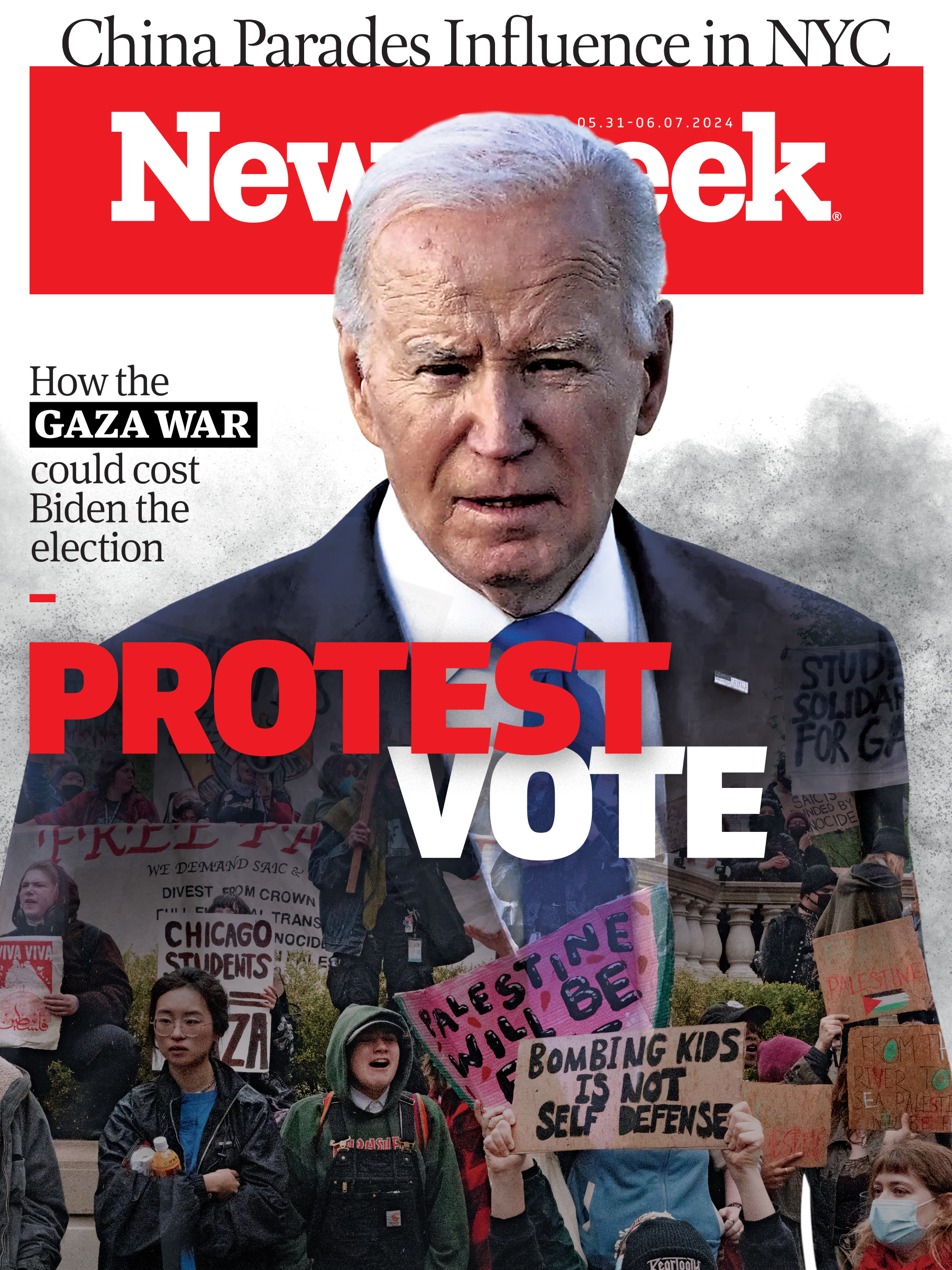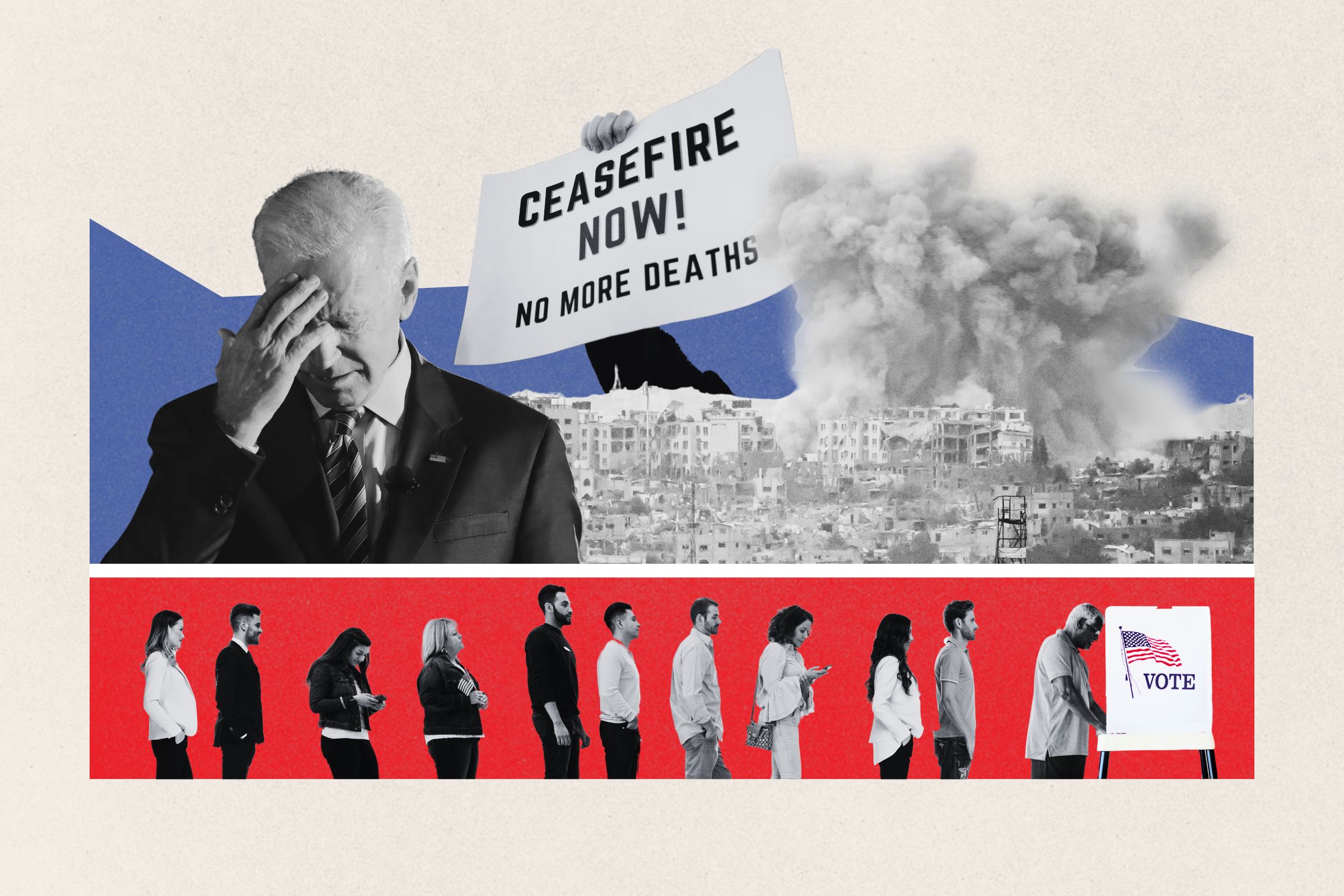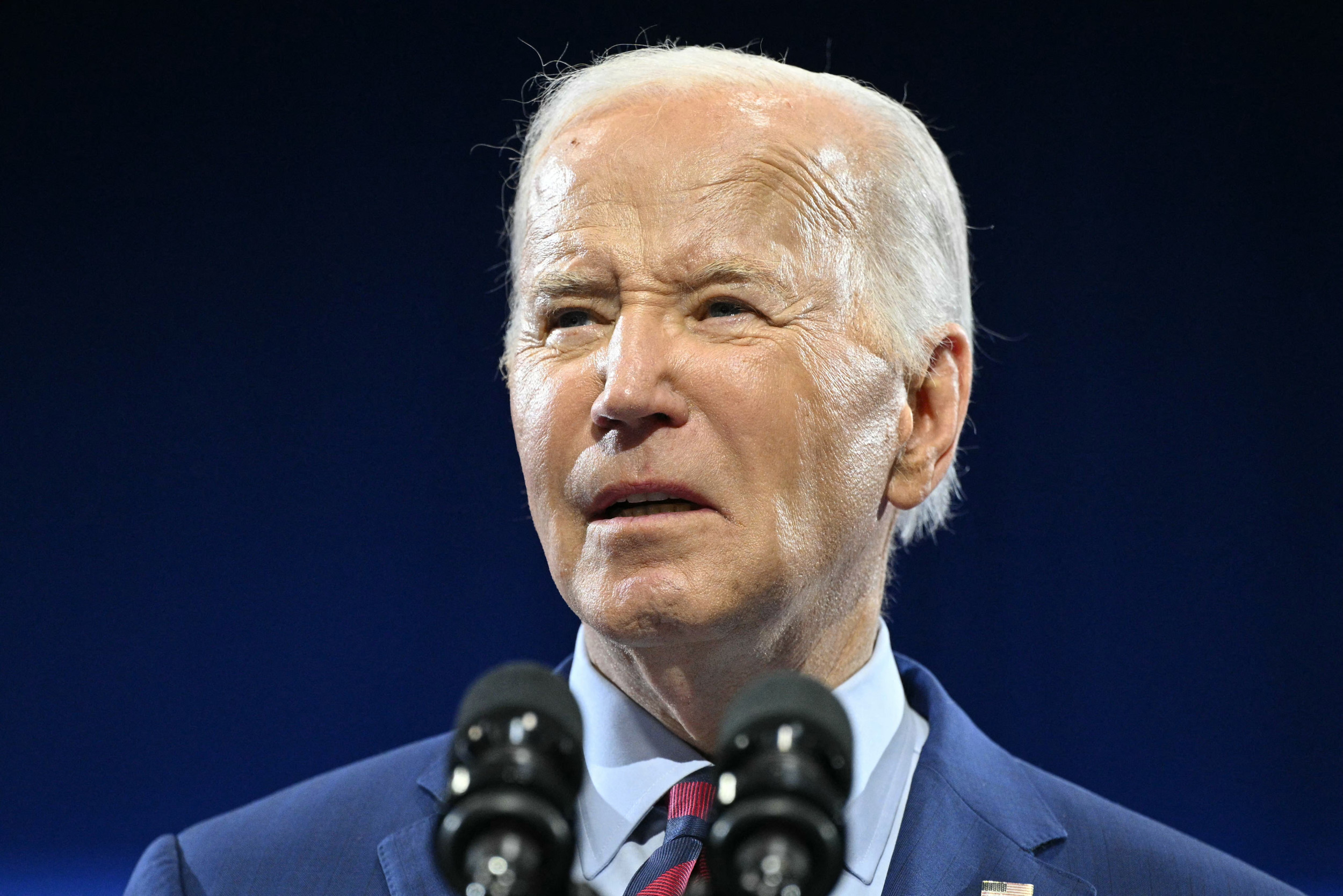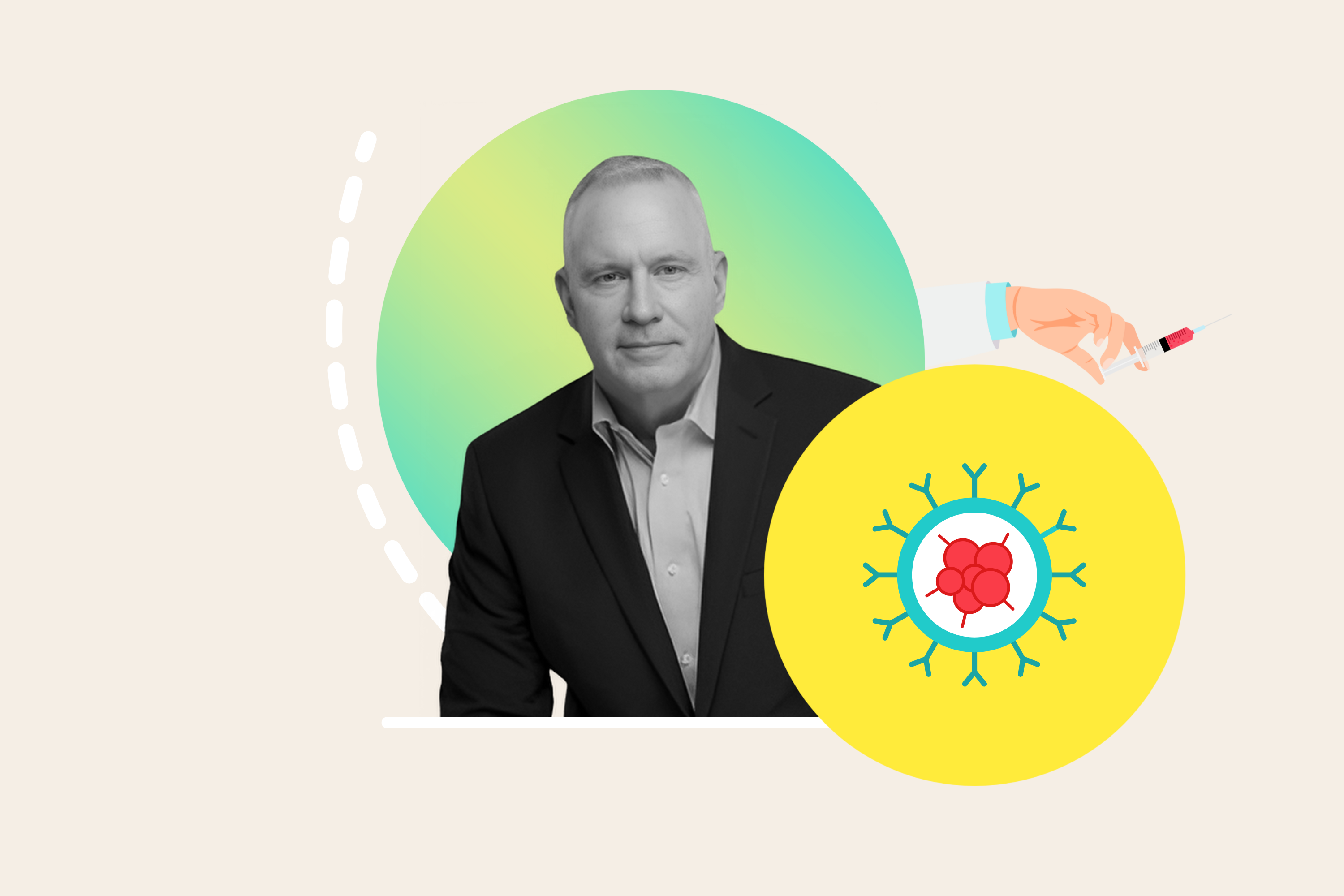The 49th governor of Michigan swings from one phone call to another for hours on end these days as she tries, from a safe social distance, to guide her state through a catastrophe that was beyond most Americans' wildest imagination until just a few weeks ago. Thrust into the national spotlight by both the pandemic and the president's barbs about her pleas for more federal assistance, Democrat Gretchen Whitmer explains to Newsweek's Steve Friess how she's feeling and what she's thinking as she leads her state through the crisis with a combination of grace, grit and humor she says she learned from her late mother. (This conversation has been edited for clarity and space.)
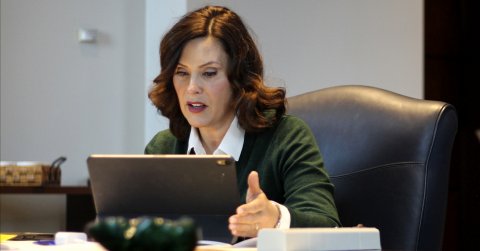
Q: How are you doing? Does anyone ask?
A: People do ask, and it's nice. I'm fortunate, I'm not worried about keeping a roof over my head. I'm not worried about contracting COVID-19 all day, every day, like our frontline healthcare workers are. I see the heroic work that's going on and it helps keep in perspective the long, stressful days we're keeping here in the office of the governor.
Q: The numbers in Michigan are pretty grave, which you believe is related to all the underlying health problems of the residents of the state and what a hub Detroit is for travel and trade. Yet the national media doesn't pick up your press conferences live the way they do for the governors of New York, New Jersey or California. Why?
A: Well, the incredible number of patients in New York City has gotten the attention of the world. Frankly, it's got my attention, too. What's happening here in Michigan is an important story and people are paying attention, but we're nowhere near the numbers that they have in New York City. There are a lot of factors going into what we're seeing and questions that need to be answered about the disparate impact the virus seems to be having based on race. That's something that's really important and people should be paying attention to those things as well.
Q: I don't want to be petty by asking you about your clothing except I am curious as to where you got the "That Woman From Michigan" T-shirt you wore on The Daily Show, as a nod to President Trump's dismissive references to you?
A: Someone sent it to me! This was a T-shirt that a woman made to show her support, and I wore it. And I've come to find that she has been selling these. She's a single woman who has a business and she's been paying her employees through this shutdown and has sold a bunch of these shirts and that's helping her survive. I had no idea when I wore the shirt. I just thought, "Let's just put this behind us. We'll show that I have a sense of humor and keep moving forward."
Q. Do you believe that Trump didn't actually know who you are?
A: Oh, I think he probably knew my name. I sat right next to him at the state dinner during my first National Governors Association conference last year. Our interactions have been just fine up until a few tweets and a few remarks from his press conferences. I take it all with a grain of salt.
Q: I've been tracing the history of sexism in your career, and it goes back a long way. Take me inside your head when these things happen.
A: One of my colleagues said something really outrageous to me on the floor of the Senate about 10 years ago. And I remember doing that calculation about how to respond—and I had to do it in a split second. Do I tell him off or do I try to educate him? Do I laugh about it? I came up with my own solution at the time.
Q: Please tell me. What did you say?
A: I'll tell you, but you can't print it.
Q: Just tell me, please?
A: Off the record?
Q: Just tell me.
A: I said, what's the F is wrong with you?
Q: What did he say to you?
A: He told me he would like to take taking me out on his boat and we'd get out to the middle of the lake and then it was my choice to sin or swim. This was just an ordinary day in the legislature maybe six years ago.
Q: You, like most politicians, are a tactile person. Normally in a major calamity, like a storm or something, you visit people, hold their hands. What is different about this one?
A: I got into this business because I want to solve problems and I care about people. And right now both of those callings are central to everything we're doing. The hardship is, of course, you can't be there in person. If there was any possibility that it was safe for me to go and walk through some of these hospital wards to give comfort to people who are sick, I would do it in a heartbeat. Yet I know I would be a distraction. I would be using PPE [personal protective equipment] that we have too few of; it would be risking the safety of me and my family and everyone on my team. So I can't do the things that are instinctual in terms of supporting people that are struggling. That's why all the TV, radio, the press conferences are so important. Because I want to stay engaged, to stay informed and to give people information so they can alleviate some of the anxiety that they're feeling.
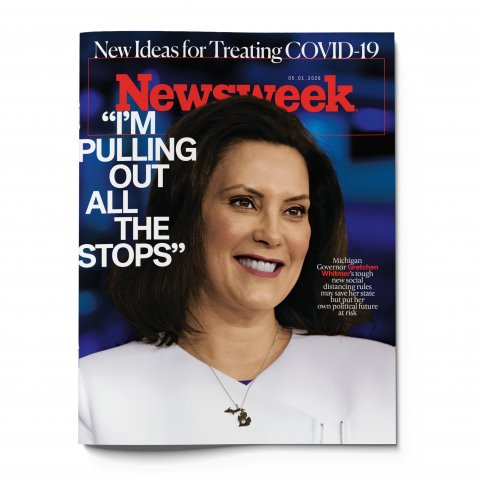
Q: What in your background has prepared you for this moment?
A: I've got a wonderful team around me. I listen. I hire the best people I can find and then I actually consult with them. Dr. Joneigh Khaldun, our state's chief medical official, has been a tireless, incredible public health advocate and every decision I've made, I've consulted her to make sure we're getting this right. I've talked with some of the leading experts around the country to make sure that I am not insulated, to make sure that I'm asking questions, that I'm challenging my team. All of those factors go into [creating] a vision and a steady hand because we have confidence in our process and how I'm making decisions.
Q: Would you accept the nomination for vice president?
A: Honestly, I really am completely inundated with COVID-19. Going to Washington D.C. has not been something that I've pursued over the course of my 20-some years in politics. But I do care a great deal about where we are headed as a country. I'm very interested in making sure that we've got leadership in this nation that people can count on and so I'm always going to be engaged.


